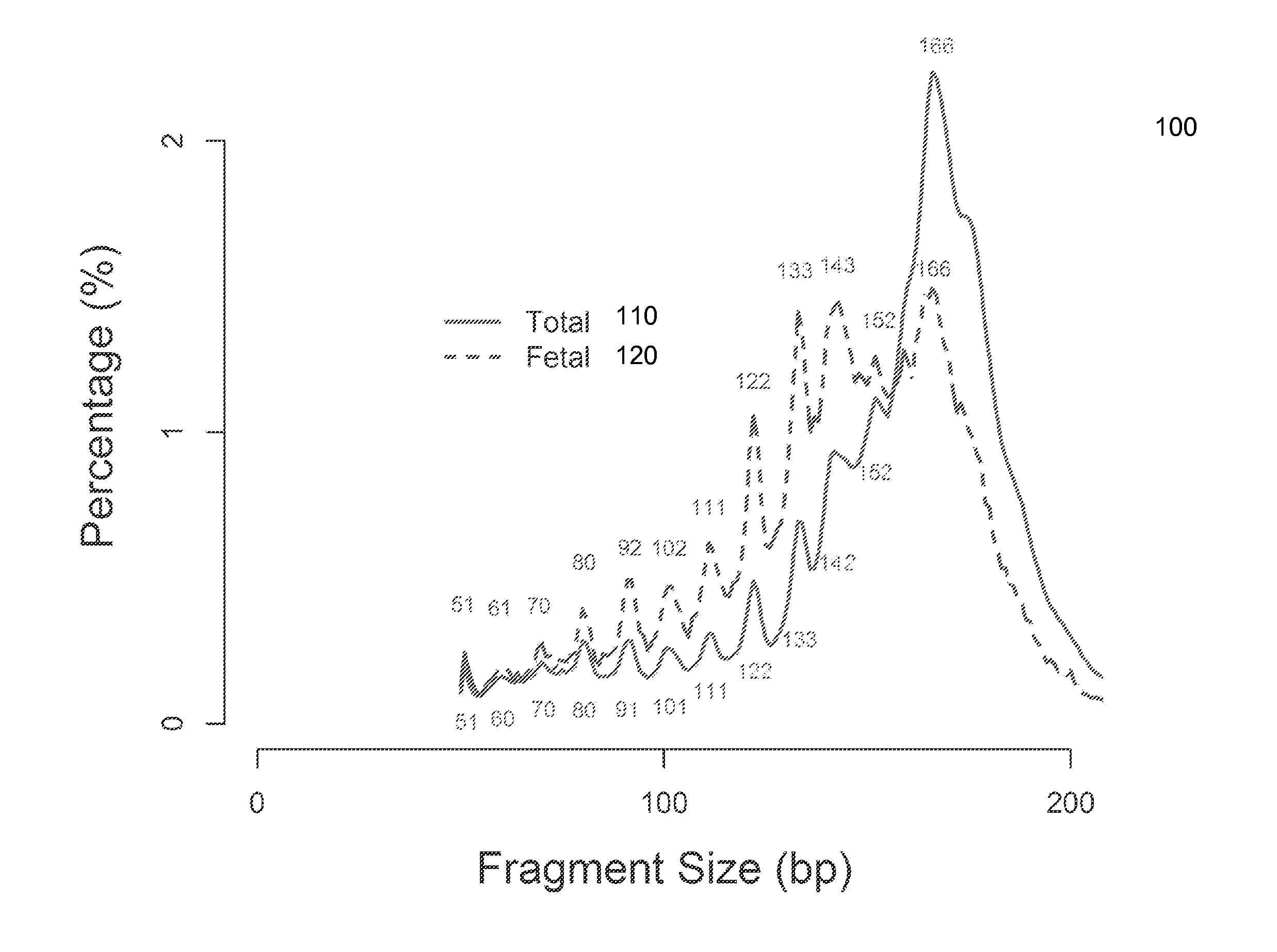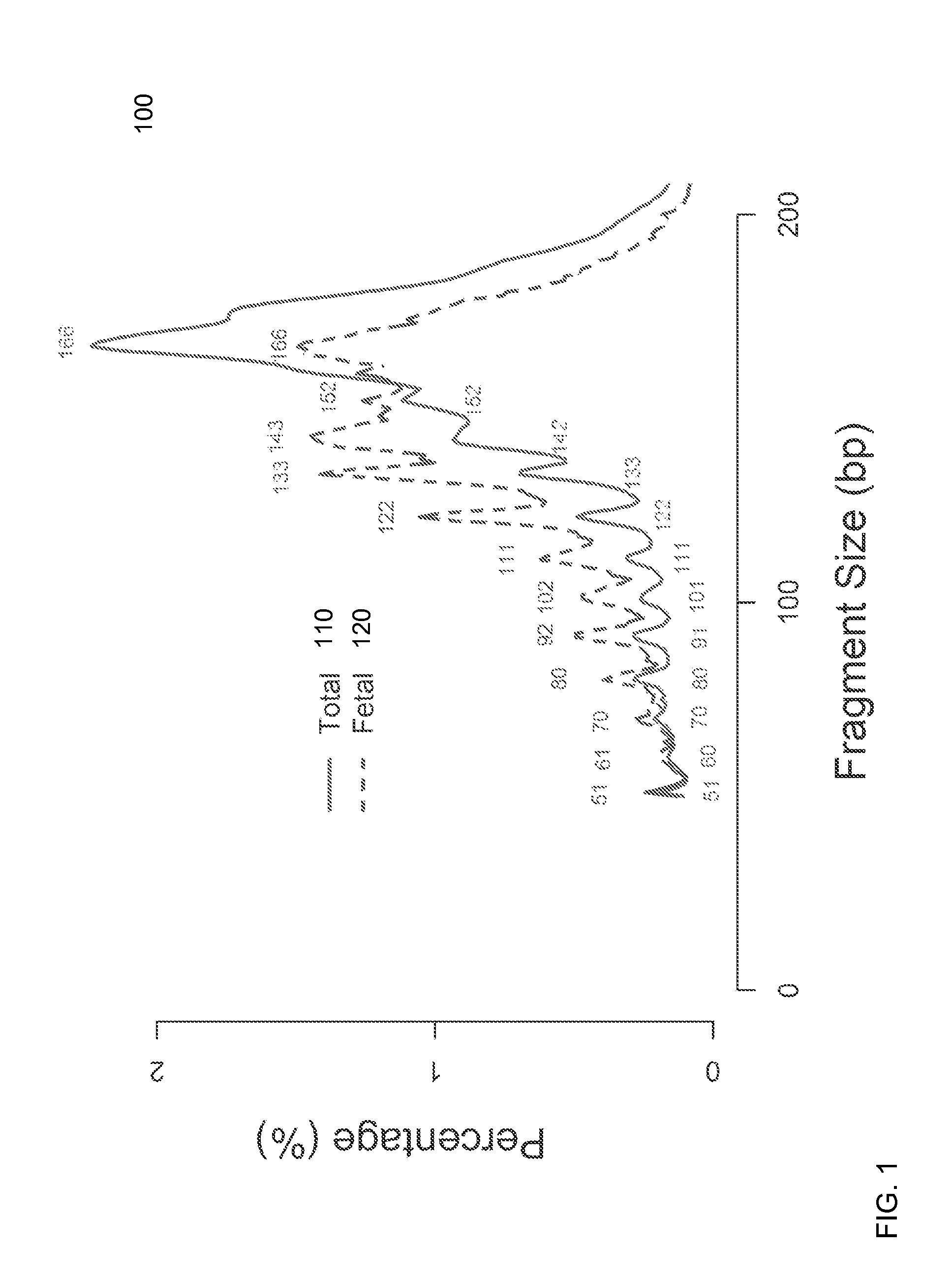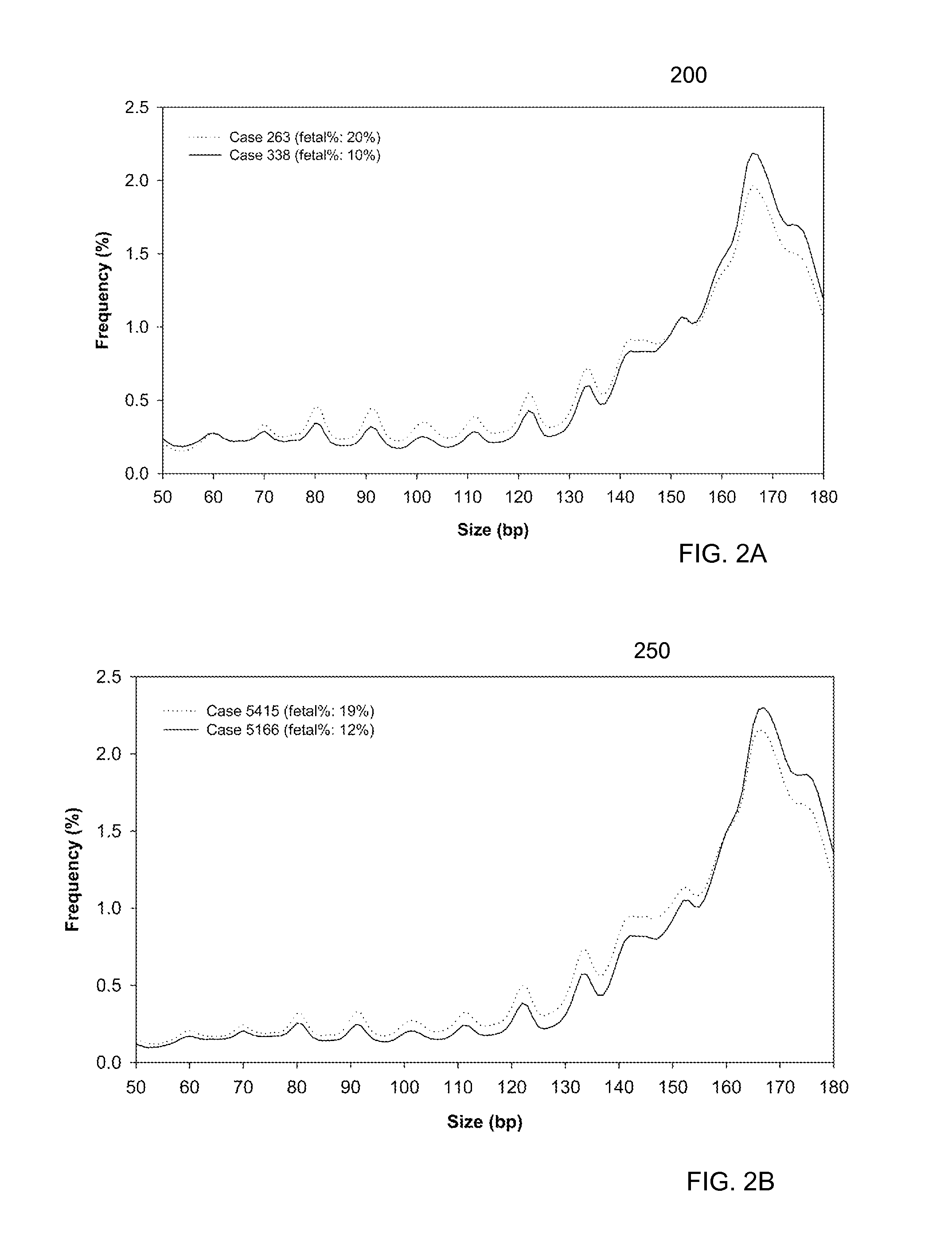Size-based analysis of fetal DNA fraction in maternal plasma
a fetal dna fraction and plasma technology, applied in the field of size-based analysis of fetal dna fraction in maternal plasma, can solve the problems of inter-individual variation in the level of dna methylation, inability to detect dna methylation markers in the same way for all fetuses, and inability to identify library members. the effect of a single set of genetic markers
- Summary
- Abstract
- Description
- Claims
- Application Information
AI Technical Summary
Benefits of technology
Problems solved by technology
Method used
Image
Examples
Embodiment Construction
[0055]It is known that cell-free fetal DNA molecules in maternal plasma are generally shorter than the maternally-derived ones (Chan KCA et al. Clin Chem 2004; 50:88-92; Lo YMD et al. Sci Trans' Med 2010; 2:61ra91). The presence of fetal DNA results in a shift in the overall size distribution of maternal plasma DNA and the degree of shifting is associated with the fractional concentration of fetal DNA. By measuring particular values of the size profile of maternal plasma DNA, embodiments can obtain the fractional fetal DNA concentration in maternal plasma.
[0056]Apart from applications in noninvasive prenatal diagnosis, embodiments can also be used for measuring the fractional concentration of clinically useful nucleic acid species of different sizes in biological fluids, which can be useful for cancer detection, transplantation, and medical monitoring. It has previously been shown that tumor-derived DNA is shorter than the non-cancer-derived DNA in a cancer patient's plasma (Diehl F...
PUM
| Property | Measurement | Unit |
|---|---|---|
| Digital information | aaaaa | aaaaa |
| Length | aaaaa | aaaaa |
| Mass | aaaaa | aaaaa |
Abstract
Description
Claims
Application Information
 Login to View More
Login to View More - R&D
- Intellectual Property
- Life Sciences
- Materials
- Tech Scout
- Unparalleled Data Quality
- Higher Quality Content
- 60% Fewer Hallucinations
Browse by: Latest US Patents, China's latest patents, Technical Efficacy Thesaurus, Application Domain, Technology Topic, Popular Technical Reports.
© 2025 PatSnap. All rights reserved.Legal|Privacy policy|Modern Slavery Act Transparency Statement|Sitemap|About US| Contact US: help@patsnap.com



